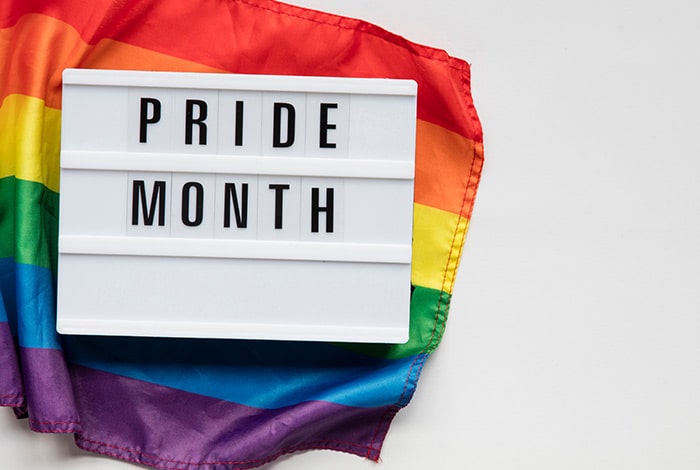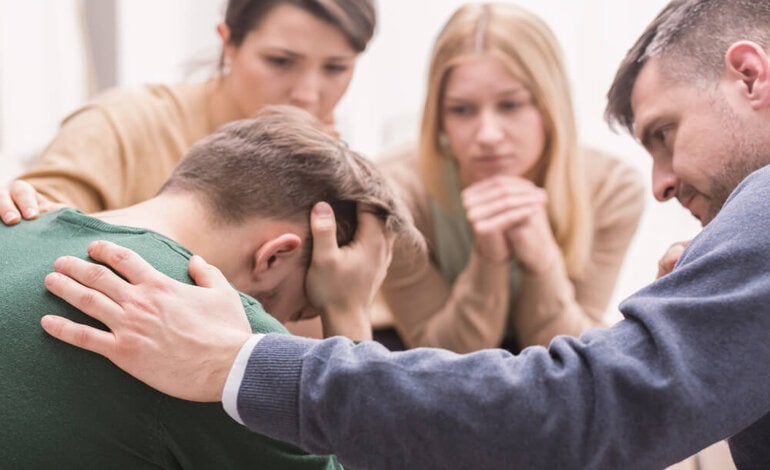“In a historic decision, the U.S. Supreme Court ruled Monday that the 1964 Civil Rights Act protects gay, lesbian, and transgender employees from discrimination based on sex. The ruling was 6-3, with Justice Neil Gorsuch, President Trump’s first appointee to the court, writing the majority opinion. The opinion was joined by Chief Justice John Roberts and the court’s four liberal justices”, according to NPR news article. Although this is a win for the LGBTQ community, this victory came after a devastating setback the week before. President Trump finalized a rule that would remove nondiscrimination protections for LGBTQ individuals when it comes to health care health insurance. Under this new rule, a transgender person could, for example, be refused care for a checkup at a doctor’s office. This could potentially carry over into mental health and addiction treatment as well.
Lesbian, Gay, Bisexual, and Transgender Pride Month (LGBT Pride Month) is celebrated annually in June to honor the 1969 Stonewall riots, and works to achieve equal justice and equal opportunity for lesbian, gay, bisexual, transgender, and questioning (LGBTQ). The LGBTQ community continues to fight for equal rights, equal healthcare, and equal opportunities in the United States.
Numbers don’t lie: The unspoken pandemic in the LGBTQ community
LGBTQ adults are twice as likely to abuse illicit drugs compared to their heterosexual counterparts. This sobering statistic does not come without reasons. Individuals in the LGBTQ community are prone to discrimination and social stigma, experience feelings of loneliness and lack of support, experience internalized homophobia, and lack substance use disorder specialized treatment options. This community is at-risk for judgment, shame, and discrimination. As a result, they often use alcohol and drugs as an unhealthy coping mechanism to numb their feelings, escape from reality, or overcome any external or internal struggles they face daily.
Among all U.S. adults aged 18 and over, 96.6% identify as straight, 1.6% as gay or lesbian, 0.7% as bisexual, and the remaining 1.1% as “something else.”
Research suggests that LGBT individuals face health disparities linked to societal stigma, discrimination, and denial of their civil and human rights. Discrimination against LGBT persons has been associated with high rates of psychiatric disorders, substance abuse, and suicide.
Personal, family and social acceptance of sexual orientation and gender identity affects the mental health and personal safety of LGBT individuals.
LGBTQ youth are four times more likely to attempt suicide, experience suicidal thoughts, and engage in self-harm than youths that are straight.
38-65% of transgender individuals experience suicidal ideation.
An estimated 20-30% of LGBT individuals abuse substances, compared to about 9% of the general population. 25% of LGBT individuals abuse alcohol, compared to 5-10% of the general population.
Methamphetamines, the silent crisis in the LGBTQ community
“I’ve watched gay men suffer from meth addiction for over 20 years — and it’s only getting worse. One of my closest friends started using the drug a couple of years ago. Previously a successful businessman, he has now lost his friends, family, and business. He spends his days searching for meth. Ten years ago, I lost a partner to crystal addiction. He relapsed after two years of sobriety and eventually died on the street.
Using meth can create an instant, false sense of intimacy and trust, allowing a cheap escape from the problems of our daily lives. At the moment, it seems euphoric; the drug is associated with enhanced sexual pleasure, after all. In reality, it’s ruining countless lives”, according to a recent New York Times article.
The LGBTQ community has overcome the HIV stigma, which decimated this community in the late 1980’s but now, especially gay men, are dying from a crisis that has been pushed under the rug, the methamphetamine crisis.
In the early 2000s, methamphetamine was made from the popular drugstore product Sudafed, and this illegal drug poured out of domestic labs in nearly every town in the United States. In 2005 Congress passed the Combat Methamphetamine Act, placing strict purchasing limits on pseudoephedrine and taking this medicine off the shelves and placing it behind the checkout counter. The focus was taken off meth, and America became obsessed with prescription painkillers. Opioids became the new epidemic, but meth quickly made a comeback when drug cartels in Mexico started producing this euphoric upper in purer quantities at a lower price.
Why meth?
Methamphetamine can be made practically anywhere from a plethora of household cleaners. Drain cleaner, antifreeze, rat poison, battery acid, and kerosene are often cooked in an underground laboratory or kitchen to be made into a white, odorless crystalline powder known as meth. This homemade drug can also be cut with common prescription medications ranging from antidepressants to laxatives, making this drug even more dangerous. The price of meth is volatile but can average about $20 a gram, which is much cheaper than other drugs of abuse such as opioids, cocaine, and Xanax. With easy access and affordable prices, this dangerous illegal street drug can be marketed to anyone. When this drug is easily obtainable, cheap to make, and associated with enhanced sexual pleasure, it is commonly used in the gay community to “create an instant, false sense of intimacy and trust, allowing a cheap escape from daily problems.
Inclusivity must start with treatment providers
Common barriers to mental health and addiction treatment in the LGBTQ community include a lack of culturally competent treatment professionals. In the 1950s and 60s, many psychiatrists believed that homosexuality, as well as bisexuality, was a mental illness. Gay men and lesbians were often subjected to treatment against their will, including forced hospitaliza¬tions, aversion therapy, and electroshock therapy. Major strides have been made since then, and many therapists and physicians today have positive and accepting attitudes towards the LGBTQ community. However, there are still many in this community who face unequal care due to the lack of training and/or understanding. As a practitioner in the substance use disorder community, it is our job to be even more empathetic, compassionate, and knowledgeable in regards to at-risk populations such as the LGBTQ community. We must become advocates for our clients. They need us now more than ever.
AKUA Mind and Body is an advocate in the LGBTQ community
AKUA Mind & Body is a substance abuse and mental health treatment center that offers detoxification, intensive treatment programs, and virtual outpatient treatment programs for individuals who are struggling with a substance use disorder. We are LGBTQ friendly and understand that this is a special community that requires state of the art treatment. Our dedicated treatment team goes underneath the surface of a presenting problem to determine the underlying triggers and address the root so that it doesn’t manifest itself in other ways.
A multidisciplinary treatment team is available to treat each client’s individual needs with the utmost professionalism and compassion. Regardless of where you are in your recovery process, AKUA Mind & Body can help.




